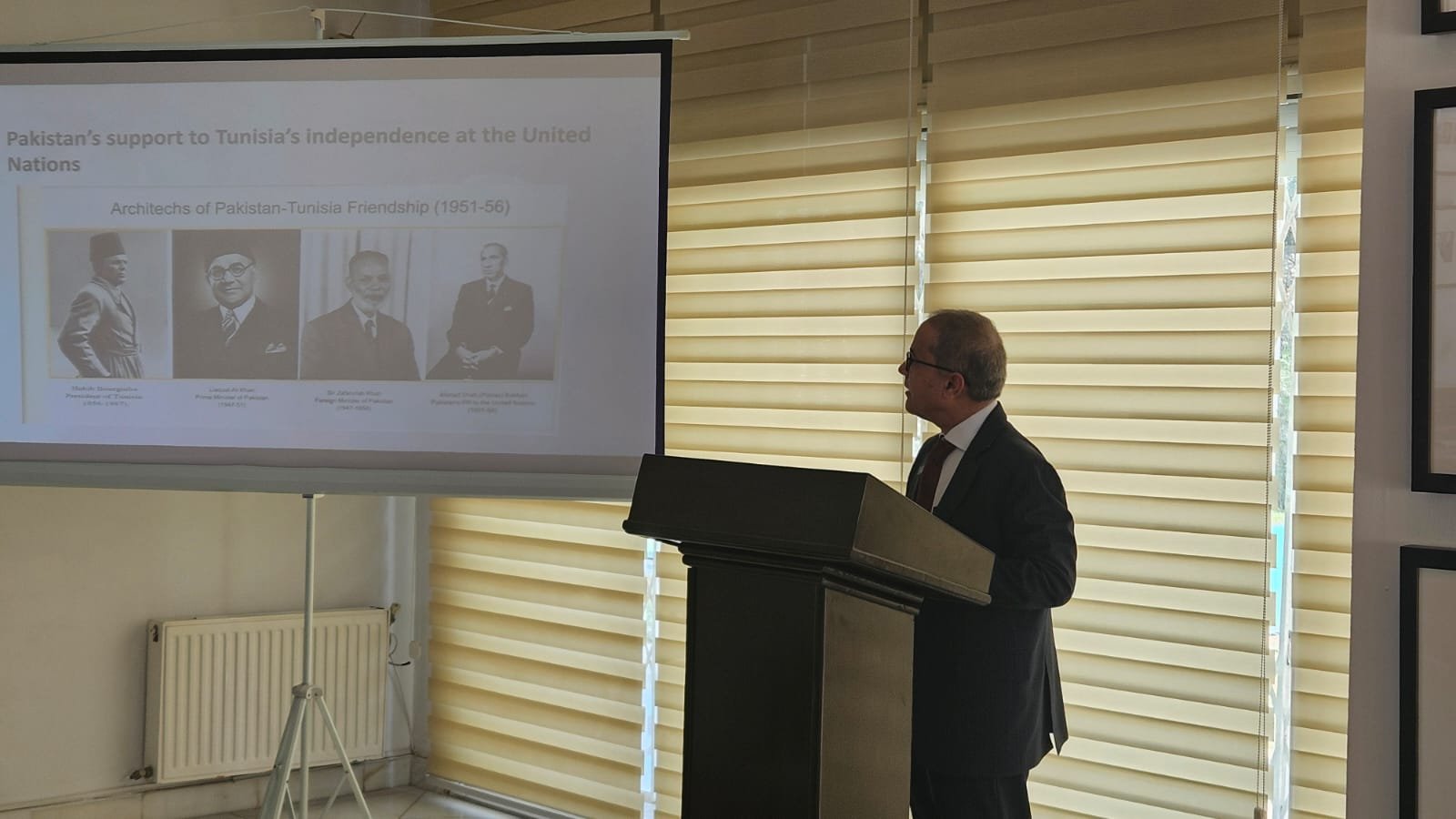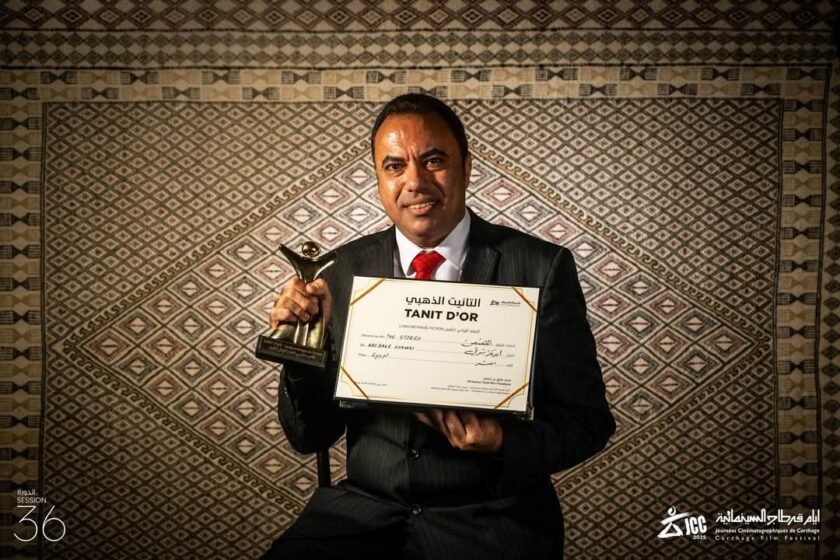The Embassy of Pakistan in Tunis on Wednesday hosted a photo exhibition showcasing the most important milestones in the history of relations between Pakistan and Tunisia from 1951 to the present day.
Through 25 photographs (black and white and colour), the exhibition offers a glimpse into the most prominent visits of Pakistani high-ranking officials to Tunisia and Tunisians to Pakistan.
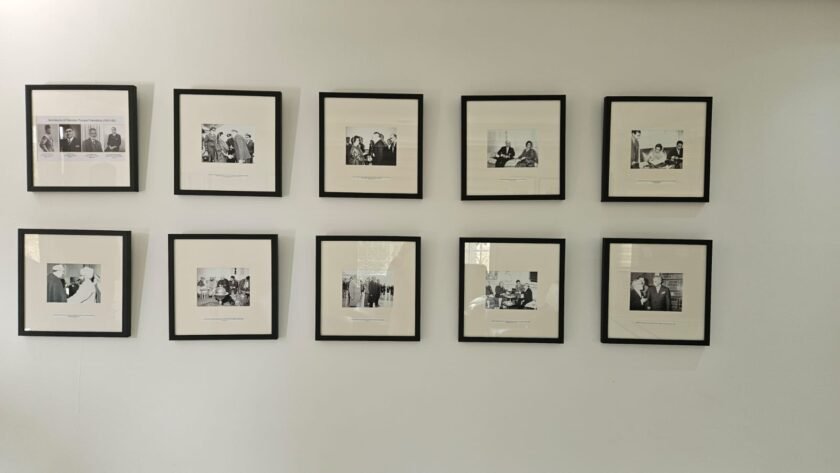
Pakistan’s Ambassador to Tunisia, Javed Ahmed Umrani, explained during a presentation to the media accompanying the exhibition that these relations long predate the official date when diplomatic ties were established in 1964, stressing that Tunisian activists who are still alive remember with great affection Pakistan’s support for the national liberation battle in Tunisia.
In 1947, on the eve of the creation of the State of Pakistan, Habib Bourguiba sent a congratulatory letter to Muhammad Ali Jinnah. Within the United Nations, Pakistan strongly supported the Tunisian struggle for liberation from French colonialism. It established an office in Karachi to mobilise international opinion in support of the Tunisian cause.
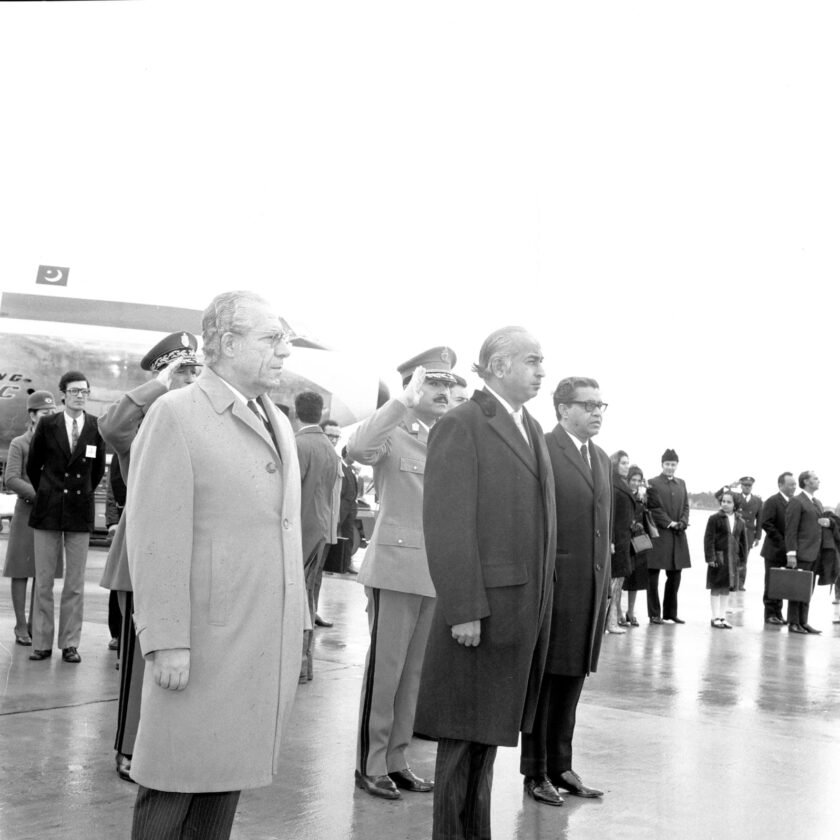
In this context, Mr Ahmed (Patras) Bukhari, Pakistan’s Permanent Representative to the United Nations from 1951 to 1954, was very influential in the Security Council on Tunisia’s right to independence, as was Pakistan’s first Foreign Minister, Mr Zafarullah Khan, who, as his country’s representative to the Security Council (1948-1954), also defended Tunisia and its right, prompting the Tunisian authorities to immortalise these two figures by naming streets in Tunisia after them and Pakistan.
On 25 March 1958, Pakistan established its first diplomatic mission at the level of chargé d’affaires, to be upgraded in 1964 to the level of ambassador. In 1980, Tunisia established an embassy and continued consultation and coordination between the two countries at the regional and international levels.
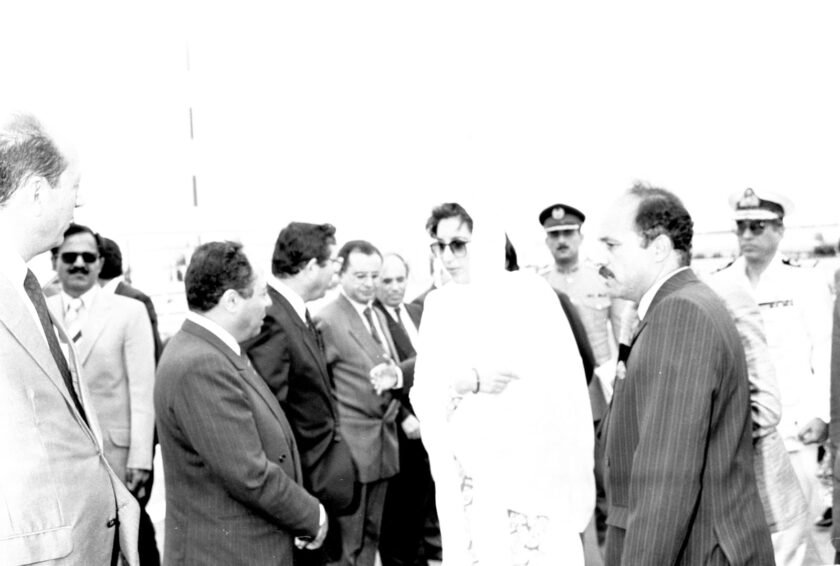
High-level visits between the two countries began on the Pakistani side in 1972, with Prime Minister Zulfikar Ali Bhutto, Benazir Bhutto, Nawaz Sharif, Pervez Musharraf, foreign ministers, cabinet members and military leaders such as Admiral Amjad Khan Niazi in 2022.
From Tunisia, it started in 1997, with a series of visits by Tunisian foreign ministers, the most recent of which was Tunisia’s participation in the 48th session of the Council of Foreign Ministers of the Organisation of Islamic Cooperation (OIC).
TunisianMonitorOnline (Dhouha Talik – English: NejiMed)

